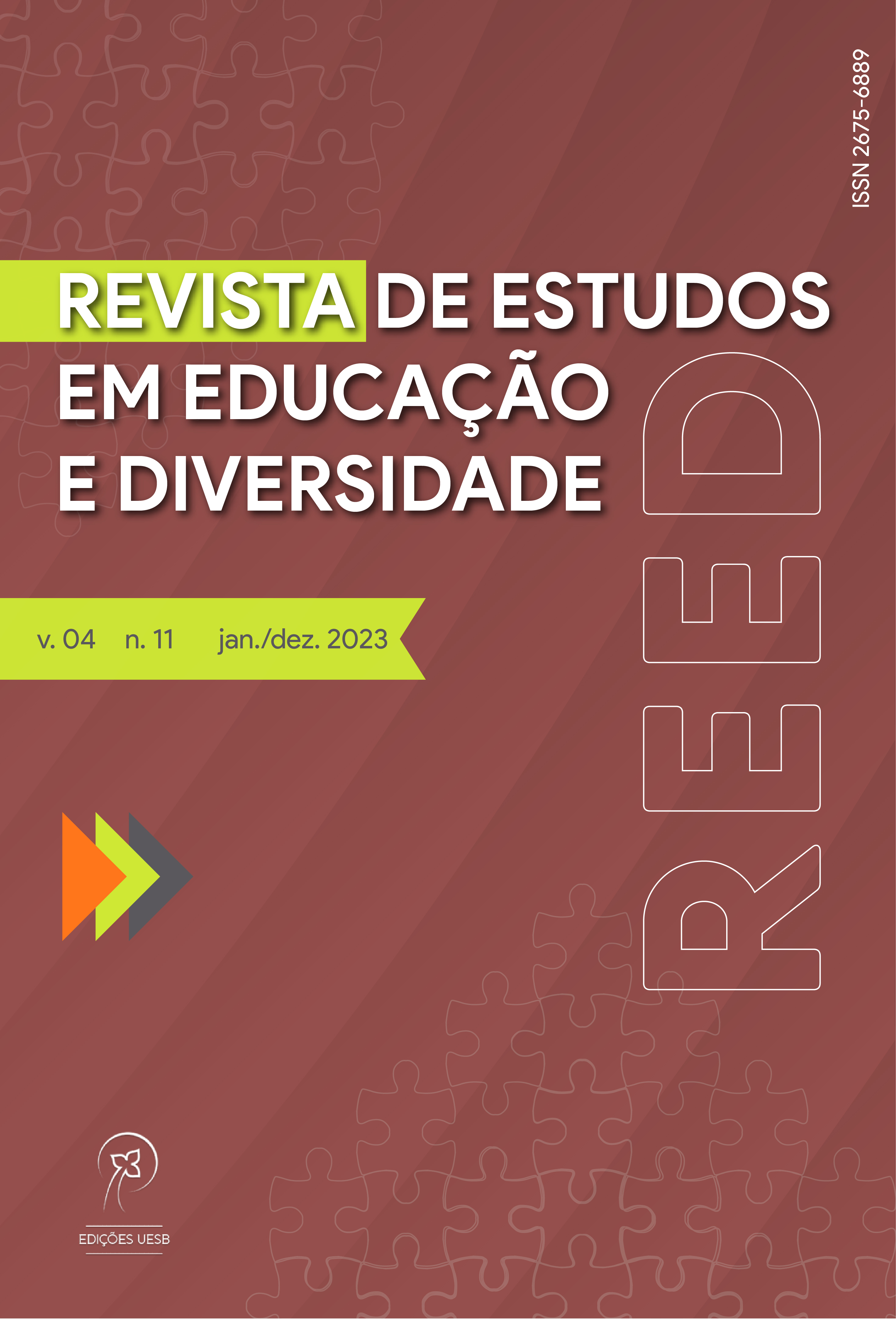Luminescence as an element of intercontextuality in chemistry teaching: an experience in PIBID
DOI:
https://doi.org/10.22481/reed.v4i11.14013Keywords:
context, study of chemistry, learningAbstract
This study seeks to verify whether the use of interrelated contexts would be a methodology capable of promoting meaningful learning through the pedagogical practices that were carried out through the pibidianos in the science club of the Military Police college Cpm Professor Poeta Luis Neves Cotrim , in the city of Jequié, Bahia. The theme ‘luminescence’ was selected for study, given the diversity of possibilities for intercontextualization offered by this theme. Intercontextuality is a condition where different contexts are interconnected and interpreted in a given social practice. From this perspective, the use of such a didactic approach not only aims to contextualize chemistry teaching, but also to emphasize that there are situations that are interconnected and influence each other in a mutual way. Therefore, we consider this to be a way of showing students how important scientific knowledge is for understanding everyday life in the most different aspects. Based on this assumption, the article was structured as follows: a review of the literature on intercontextuality, knowledge construction, luminescence and the study of chemistry. Next, the methodology used to conduct the workshop presented in lesson plans and data collection through a qualitative questionnaire applied to students is described. The results of the data analysis are presented in the subsequent section, followed by a discussion of the interactions of these results. Finally, it is possible to conclude that the approach used was able to present relationships between contexts, creating learning opportunities for the student, making it possible to relate scientific knowledge with everyday knowledge.
Downloads
References
ALBUQUERQUE, A. G. A importância da contextualização na prática pedagógica. Research, Society and Development, v. 8, n. 11, p. 1-13, 2019.
AMÉRICO, F. G. et al. O Uso do Tema Luminescência para a Contextualização do Tópico Atomística. In: REUNIÃO ANUAL DA SOCIEDADE BRASILEIRA DE QUÍMICA, 31., 2008, Águas de Lindóia, SP. Anais [...]. Águas de Lindóia, SP: SBQ, 2008. Disponível em: http://sec.sbq.org.br/cdrom/31ra/resumos/t0879-1.pdf. Acesso em: 21 jul. 2023.
BEZERRA, M. S.; SANTOS, L. L. Oficina de Luminescência: Promoção do saber científico baseado em atividades experimentais. In: ENCONTRO NACIONAL DE ENSINO DE QUÍMICA - ENEQ, 28., 2016, Florianópolis, SC. Anais [...]. Florianópolis: UFSC, 2016. p. 1-10. Disponível em: https://www.eneq2016.ufsc.br/anais/resumos/R0834-1.pdf. Acesso em: 23 jul. 2023.
FESTAS, M. I. F. A aprendizagem contextualizada: análise dos seus fundamentos e práticas pedagógicas. Educação e Pesquisa, São Paulo, v. 41, n. 3, p. 713-728, jul./set. 2015. Disponível em: http://dx.doi.org/10.1590/S1517-9702201507128518. Acesso em: 20 set. 2023.
FLICK, U. Qualidade na Pesquisa Qualitativa. São Paulo: Bookman e Artmed, 2009.
MEURER, J. L. Ampliando a noção de contexto na lingüística sistêmico-funcional e na análise crítica do discurso. Linguagem em (Dis)curso - LemD, Tubarão, v. 4, n.esp, p. 133-157, 2004. Disponível em: https://portaldeperiodicos.animaeducacao.com.br/index.php/Linguagem_Discurso/article/view/294/308. Acesso em: 21 jul. 2023.
MOREIRA, M. A. Aprendizagem significativa. Brasília: Unb, 1999. 130 p.
OLIVEIRA, R. G.; MARIA, S. N.; MEDEIROS, L. S. B. Metodologia de contextualização da aprendizagem para a promoção de uma avaliação construtiva. Cadernos da Pedagogia, v. 16, n. 34, p. 04-11, janeiro-abril/2022. Disponível em: https://www.cadernosdapedagogia.ufscar.br/index.php/cp/article/view/1812/742. Acesso em: 18 set. 2023.
Downloads
Published
How to Cite
Issue
Section
License
Copyright (c) 2023 Revista de Estudos em Educação e Diversidade - REED

This work is licensed under a Creative Commons Attribution 4.0 International License.
You are free to:
Share - copy and redistribute the material in any medium or format; Adapt - remix, transform, and build from the material for any purpose, even commercially. This license is acceptable for Free Cultural Works. The licensor cannot revoke these freedoms as long as you follow the terms of the license.
Under the following terms:
Attribution - You must appropriately give credit, provide a link to the license, and indicate if any changes have been made. You may do so in any reasonable way, but not in a way that suggests that you or your use is endorsed by the licensor.
There are no additional restrictions - You cannot apply legal terms or technological measures that legally restrict others to make any use permitted by the license.






